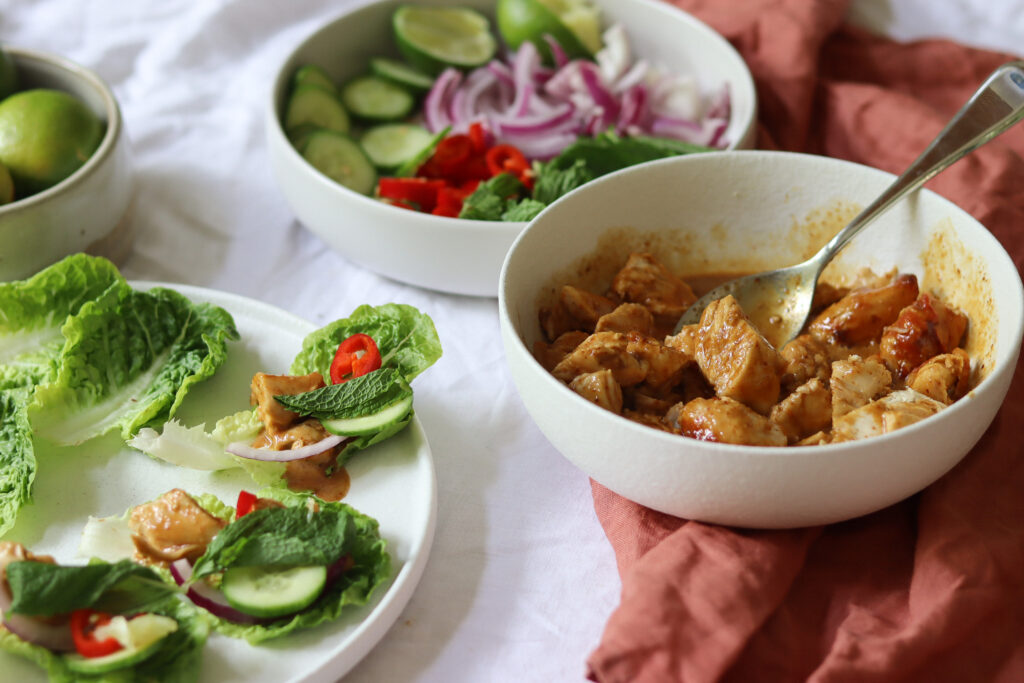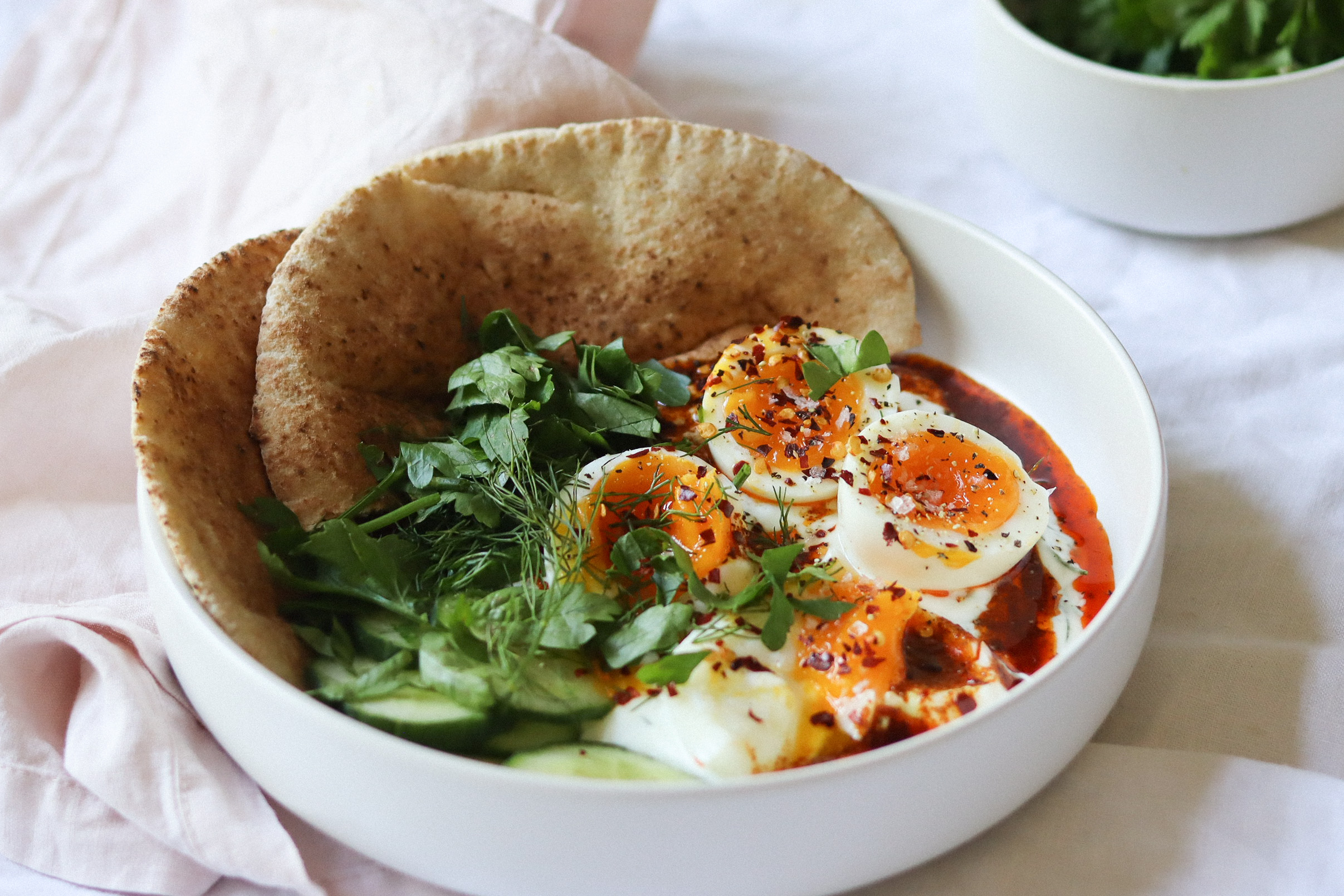Support your movement journey with our CLEAN & GREEN 21-day meal plan.
When it comes to your health, movement and nutrition go hand in hand. A healthy diet fuels an active mind and body, and consistent movement helps motivate a healthy lifestyle.
The foods we eat play an important role in both our physical and mental wellbeing.
THE PHYSICAL BENEFITS FROM FOOD
- Protein – Protein builds and maintains strong and healthy muscles, and builds enzymes and proteins for the body’s cellular processes. Adequate protein intake boosts metabolism. Protein also helps keep you satisfied between meals and reduces cravings. Great animal sources of protein to consider include: lean beef, lamb, chicken, turkey, fish and eggs. Vegan sources of protein to consider include: organic tofu, tempeh, chickpeas and beans.
- Carbohydrates – Carbs provide the body with glucose which is converted to energy and used by our body’s cells. Carb requirements differentiate based on activity level and body mass. Great sources of carbs to consider include: whole grains such as rice, quinoa and oats, potato, sweet potato, legumes
- Fats – Good fats nourish the brain and nervous system. Fats are integral for brain function, hormone function, healthy weight and inflammatory response within the body. Fats also support skin health. Great sources of fats to consider include: coconut products/coconut oil, tahini, ghee, avocado/avocado oil, nuts and nut butters, seeds and salmon.
- Vitamins and minerals- protect and enhance immunity, cardiovascular system, bodily functions and menstrual health
- Fibre – support digestive system and energy levels
- Antioxidants – reduce risk of disease and maintain healthy skin, hair and nails
Other foods to consider:
- Fermented Foods – Fermented foods such as sauerkraut, kimchi, miso and kefir help to support a healthy gut flora balance. Fermented foods give your body a healthy dose of probiotics with are crucial to digestion.
- Sugar – Our bodies require sugar to survive however in large quantities or in the wrong form sugar can be damaging. When using sugar consider natural forms including raw honey, pure maple syrup and medjool dates
THE MENTAL BENEFITS FROM FOOD
- Great nutrition can help with:
- Improved focus and concentration
- Boosted mood
- Increased brain function
- Healthy and maintained energy levels
- The release of healthy hormones to boost self esteem
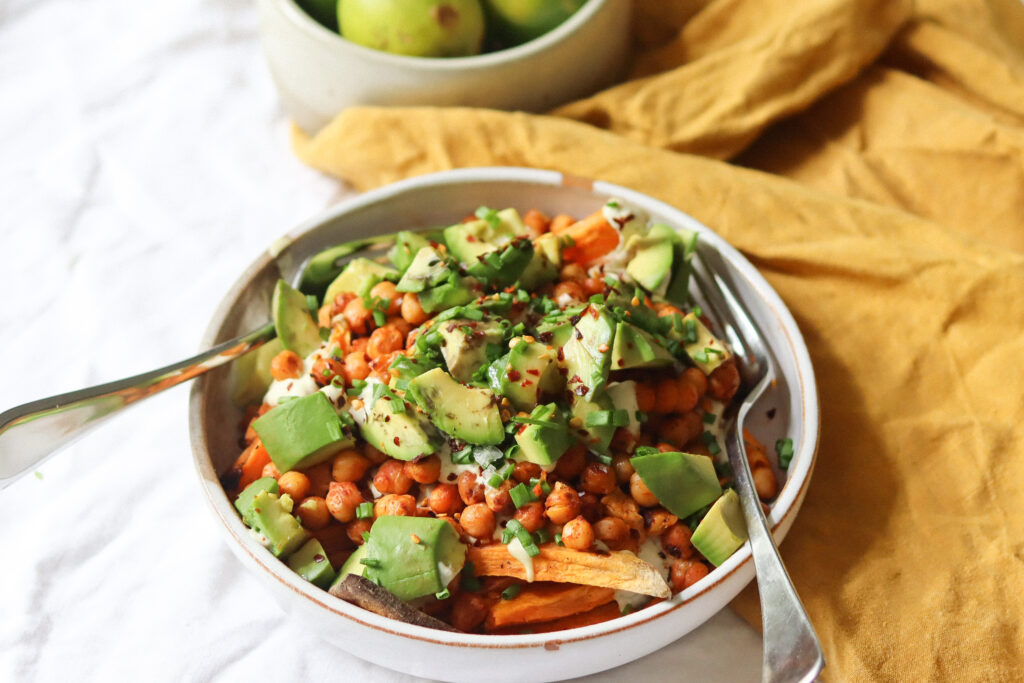
INTRODUCING CLEAN & GREEN
This 21-day meal plan comprises of 32 recipes to keep your body fueled as you complete your movement challenge. You will feel lighter, more energised and sustained. Our approach to nutrition is simple – we focus on fresh, nourishing ingredients to build balanced and holistic meals. Find confidence in the kitchen and take the hassle out of eating well.
We encourage you to follow the meal plans in the recommended order for ultimate results, however you are free to make swaps and alterations to suit your needs and lifestyle.
WHAT’S ON THE MENU?
BREAKFAST
- Cacao and Berry Overnight Oats
- Turkish Style Eggs with Herbed Yoghurt
- Sweet Potato Protein Bread
- Papaya and Coconut Yoghurt Boats
- Herbed Mushroom and Goat’s Cheese Omelette
- Super Green Halloumi Pesto Bowl
LUNCH
- Spring Salmon Tahini Bowl
- Loaded Sweet Potato Fries with Crispy Chickpeas
- Quinoa Crusted Chicken Schnitzel and Cabbage Salad
- Lemon & Walnut Zucchini Noodles With Lentils
- Spicy Cashew Satay Noodles
- Beetroot, Mackerel & Almond Salad
- Summer Mango Noodle Salad
- Green Goddess Chickpea Sandwich
- Almond Satay Lettuce Cups
- Lemongrass Beef Noodle Bowl
DINNER
- Tray Bake Turmeric and Coconut Curry
- Zucchini Ravioli Tray Bake
- Miso Ginger Pumpkin Noodles
- Poached Coconut Chicken Bowl
- Ginger Tofu & Zucchini Skewers
- Cauliflower Base Pizza
- Mediterranean Chicken Bake
- Fish Tacos with Cabbage Slaw
- Kale And Edamame Salad
SNACKS
- Matcha and Dark Chocolate Truffles
- Nutrient-Dense Snack Plate
- Sunshine Juice
- Matcha Chia Pudding Jars
- Seed Crackers With Pesto & Sauerkraut
- Almond & Fig Balls
- Banana & Macadamia Nicecream
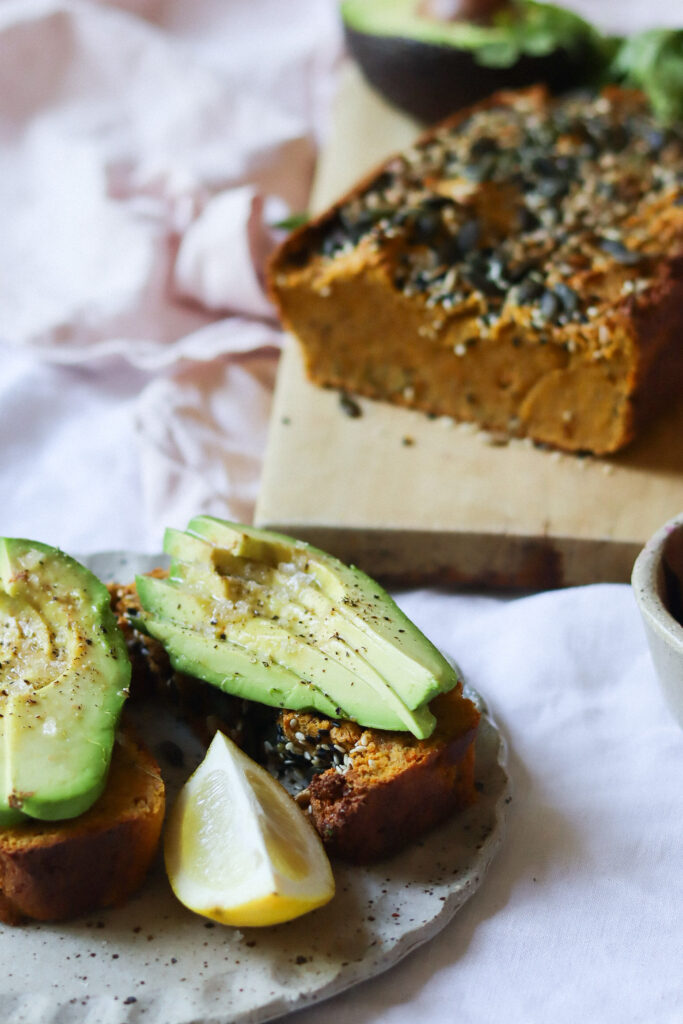
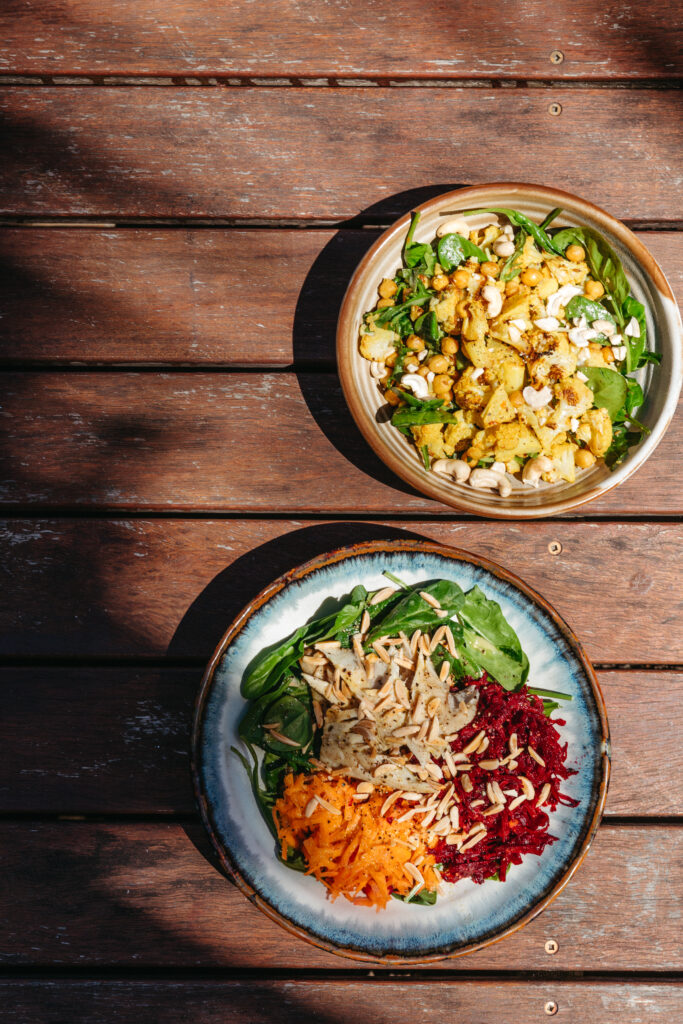
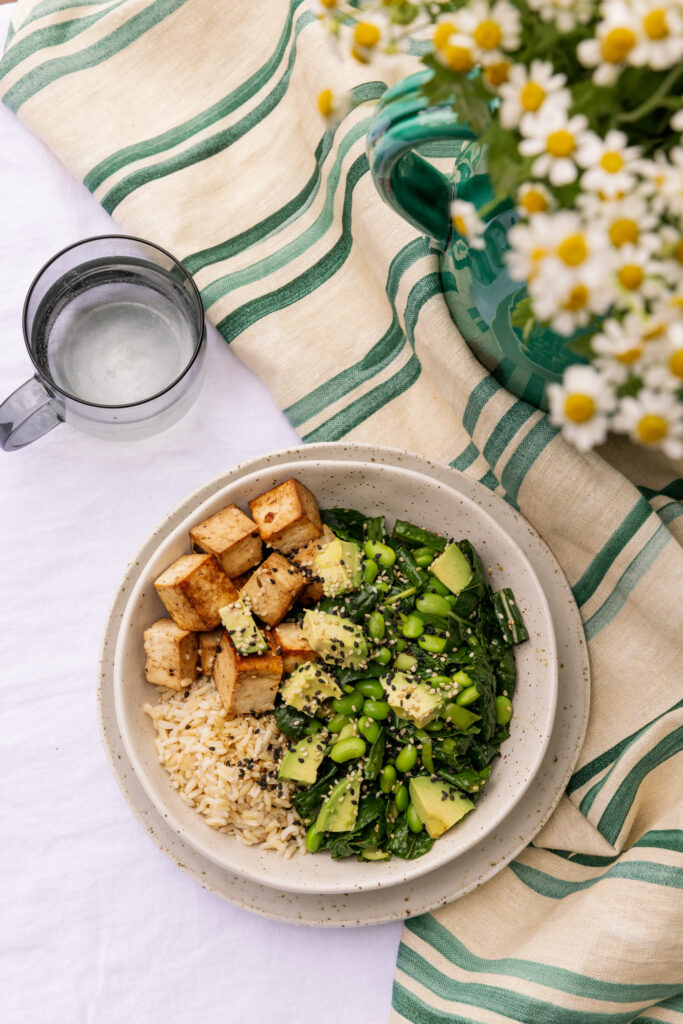
HYDRATION & PREPARATION
The key to seeing results and supporting your nutrition journey is through preparation and hydrated. Use your Sunday afternoons to prepare yourself for the week ahead. Use our downloading shopping list to assist with grabbing all the necessary ingredients for a healthy and nourishing week.
Drink at least 2L of water every day to hydrate your body and maintain your fluids between meals. Often we confuse hunger with dehydration. Maintaining a healthy level of hydration will ensure you are not reaching for snacks to curb your cravings.
Consider preparing the following meals to save time during the week:
- Make three serves of overnight oats
- Prepare your loaf of sweet potato bread
- Roast two serves of sweet potato chips
- Prepare your crispy chickpeas
- Matcha and Dark Chocolate Truffles
- Almond and Fig Balls
- Banana and Macadamia Nicecream
Visit our Guide To Recommended Brands for the brands we opt for when grocery shopping. Use this as a guide only, the key to eating well is keeping it simple, local and fresh.
Follow these tips to keeping your food fresh:
- Only purchase enough food for the week ahead, to avoid food waste
- Prepare any dressings or dips and keep them refrigerated, in an airtight container
- Bread can be stored in the fridge, and lightly toasted with meals. You can also store bread in the freezer. Be sure to slice the bread prior to freezing to allow for easy defrosting later. Simply place the frozen slice straight in the toaster.
- Compartmentalise your fridge and pantry into categories: fruit and vegetables, grains and legumes, meat and fish. This helps to showcase everything you have available, to avoid foods going to waste. Keep foods with a shorter shelf life easy to see and use, to avoid being forgotten and going to waste.
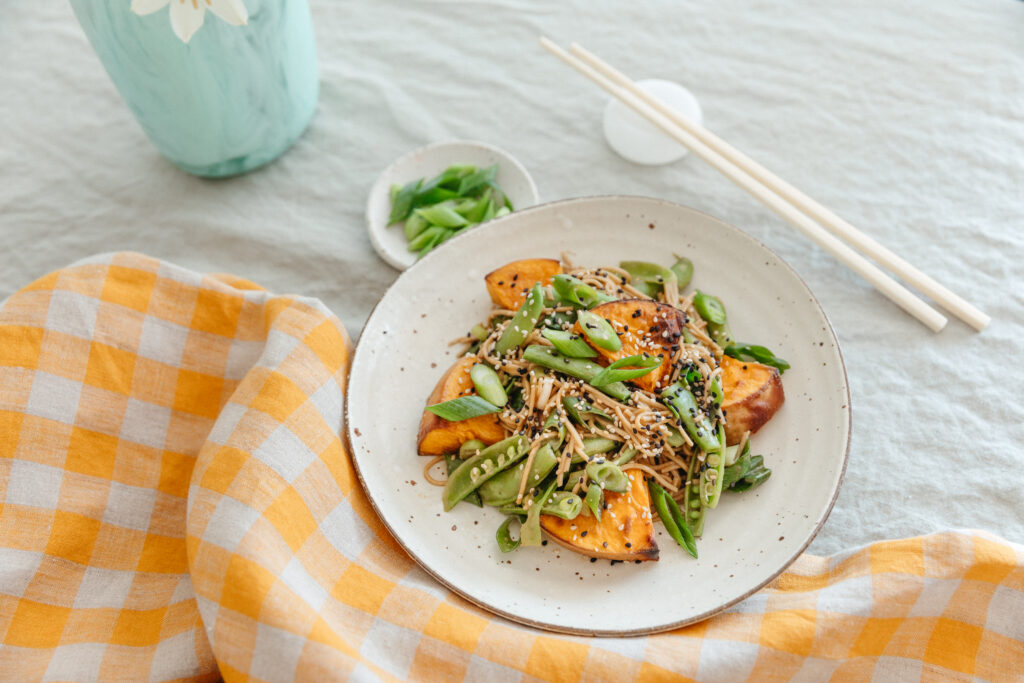
CUSTOMISE
This meal plan and recipes are provided as a guide towards eating well and fueling your body with healthy, nutritious ingredients. It is important to listen to your body, and customise these recipes and meal plan to suit you and your individual needs.
If you’re feeling hungry in between meals, refer to our guide to healthy snacks. You can combine two snacks on each day or increase the quantities to feel full and satisfied. Remember to drink plenty of water in between meals, often when we feel hungry between meals our bodies are actually dehydrated.
BREASTFEEDING?
It is important to remember that every woman and their baby will respond differently to different foods while they are breastfeeding and bottlefeeding. There are no foods that every woman should avoid, however there are a number of foods you can limit or be aware of during this period, to ensure healthy milk production and a happy and healthy baby. Like any period in your life, eat foods in moderation and maintain a well-balanced diet.
Foods to limit or be aware of:
- Alcohol and highly processed foods / added sugars.
- Caffeine (includes black tea).
- Seafood high in mercury including tuna, swordfish, mackerel.
- Herbs such as peppermint, parsley and sage.
- Spicy foods and garlic may impact the flavour of breastmilk, which may impact how your baby responds.
- Be aware of common food allergies: dairy, soy, gluten, eggs, peanuts, citrus and fish. Monitor how your baby responds to these foods.
FAMILY FRIENDLY
These recipes are designed to please the entire family. We have provided different options to appeal to everyone. You can always swap tofu for chicken, or fish for chicken or beef to suit your needs.
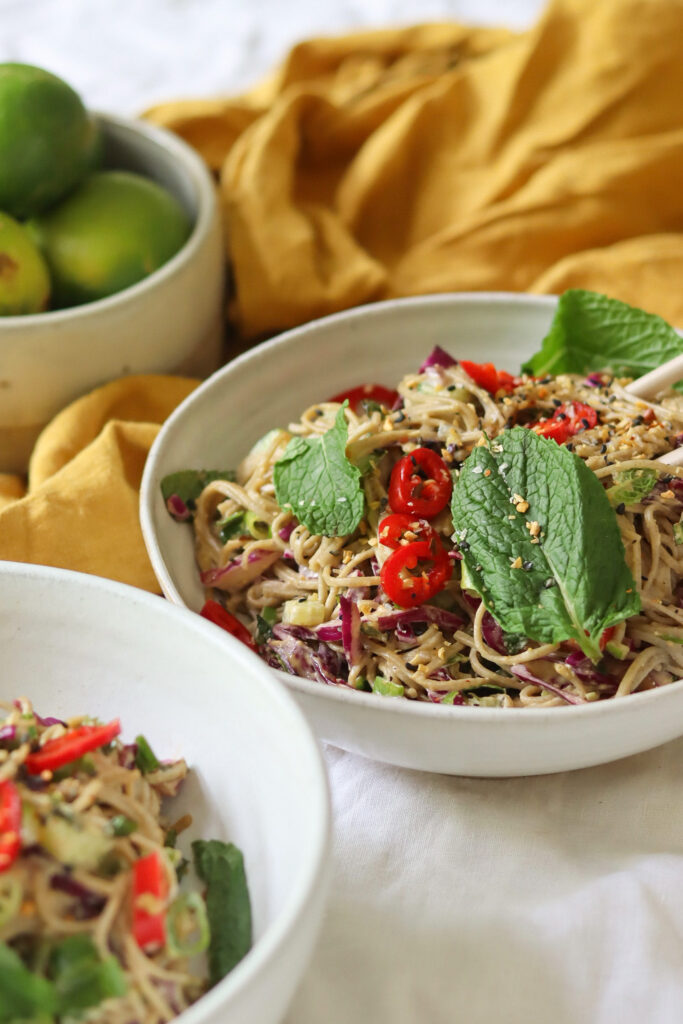
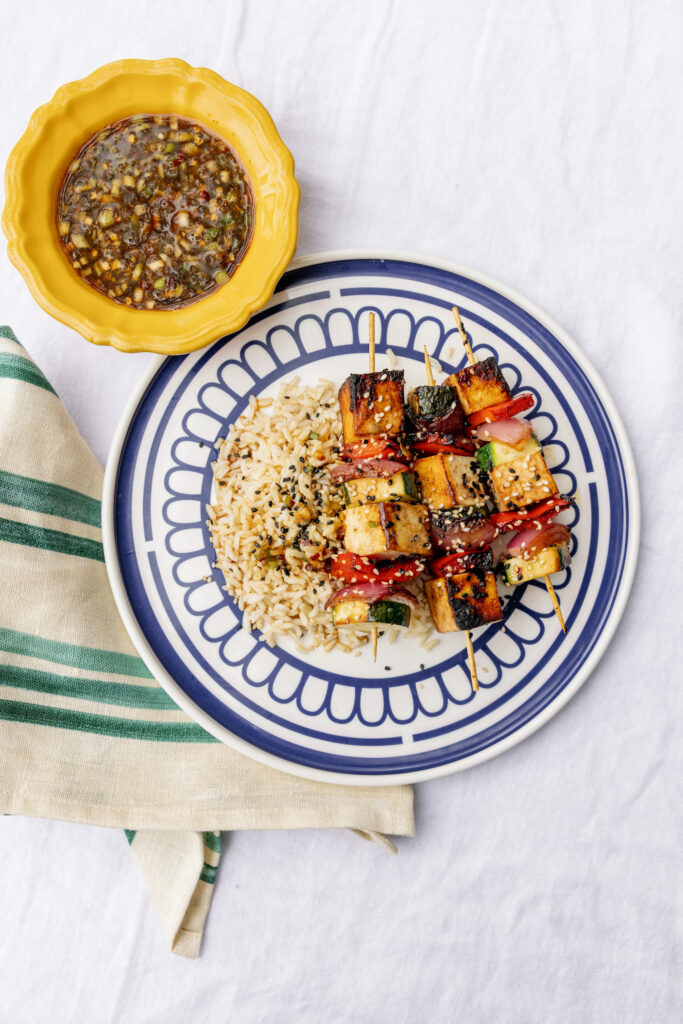
THINGS TO AVOID
Where possible, over the next 21 days, try to avoid the following. A few slip ups is natural, but do the best you can.
- Refined sugar
What to go for instead?
Fresh fruit, particularly strawberries, raspberries, blueberries, kiwi fruit, apples and pears.
- Gluten
What to go for instead?
Seed crackers, rice, rice crackers, buckwheat, quinoa, millet and amaranth.
- Processed meat, caged chicken, caged eggs, farmed fish, grain-fed beef
What to go for instead?
Wild fish where possible, pasture-raised chicken and eggs and grass-fed meat. Organic is a bonus.
- Dairy
What to go for instead?
Coconut yoghurt, almond milk, coconut milk, coconut cream and nutritional yeast which gives food a cheesy flavour.
- Vegetable oils and industrial seed oils
What to go for instead?
Go for avocado oil, extra virgin olive oil (must be extra virgin), coconut oil, ghee, butter and hemp seed oil. Avocado, olive and hemp seed oils should be in a dark glass bottle (don’t buy anything in clear plastic), as this preserves the fats in them which can be unstable and negatively affected by light and heat.
- Processed foods and food additives
What to go for instead?
Go for whole foods over packaged and processed foods, make your own sauces and focus on simple flavours.
